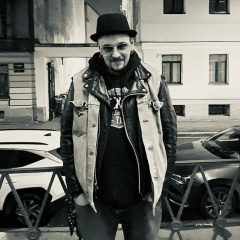"Германская тюрьма по сравнению с одесской выглядела для Алехина просто раем. Ежедневно из камеры выводили людей по спискам на расстрел: узники каждую минуту ждали своего конца, никакой надежды на спасение не было.
Однажды дверь в камеру открылась, и стали зачитывать очередной список приговоренных – прозвучала фамилия «Алехин». Но тут возникла неожиданная пауза, и чекист, по виду из бывших студентов, спросил, кем он приходится шахматисту Алехину.
Узнав, что это тот самый знаменитый Алехин, чекист сам вычеркнул шахматиста из страшного списка и перевел того в другую камеру с заложниками. Фамилию своего спасителя Алехин так и не узнал.
Еще через три месяца тюремного заключения Алехина выпустили на свободу. В то время это был чуть ли не единичный случай освобождения из ЧК.
Легенда гласит, что сам Троцкий приказал освободить Алехина после того, как проиграл ему несколько партий в шахматы подряд. Но ближе к истине другая версия: летом 1919 года Одессу посетил член революционного комитета Украины – Дмитрий Захарович Мануильский.
Он был большим поклонником шахмат и, узнав, что в Одессе ожидает расстрела сам Алехин, тотчас распорядился его отпустить. Так шахматная популярность Алехина спасла ему жизнь.
По протекции Мануильского Алехина взяли на работу в Москву, но «одесский опыт» Алехин запомнил навсегда и оставаться в стране Советов больше не хотел.
В 1921 году он женился на швейцарской журналистке Анне-Лизе Рюгг и получил разрешение выехать с семьей на границу. Больше Алехин на родину не вернулся – он прекрасно знал, что рокировку можно сделать только один раз..."
Однажды дверь в камеру открылась, и стали зачитывать очередной список приговоренных – прозвучала фамилия «Алехин». Но тут возникла неожиданная пауза, и чекист, по виду из бывших студентов, спросил, кем он приходится шахматисту Алехину.
Узнав, что это тот самый знаменитый Алехин, чекист сам вычеркнул шахматиста из страшного списка и перевел того в другую камеру с заложниками. Фамилию своего спасителя Алехин так и не узнал.
Еще через три месяца тюремного заключения Алехина выпустили на свободу. В то время это был чуть ли не единичный случай освобождения из ЧК.
Легенда гласит, что сам Троцкий приказал освободить Алехина после того, как проиграл ему несколько партий в шахматы подряд. Но ближе к истине другая версия: летом 1919 года Одессу посетил член революционного комитета Украины – Дмитрий Захарович Мануильский.
Он был большим поклонником шахмат и, узнав, что в Одессе ожидает расстрела сам Алехин, тотчас распорядился его отпустить. Так шахматная популярность Алехина спасла ему жизнь.
По протекции Мануильского Алехина взяли на работу в Москву, но «одесский опыт» Алехин запомнил навсегда и оставаться в стране Советов больше не хотел.
В 1921 году он женился на швейцарской журналистке Анне-Лизе Рюгг и получил разрешение выехать с семьей на границу. Больше Алехин на родину не вернулся – он прекрасно знал, что рокировку можно сделать только один раз..."
"The German prison, in comparison with the Odessa one, looked like a paradise for Alekhine. Every day people were taken out of the cell according to the lists for execution: the prisoners waited every minute for their end, there was no hope of salvation.
One day the door to the cell opened, and they began to read out the next list of the condemned - the surname "Alekhine" was heard. But then there was an unexpected pause, and the Chekist, who looked like a former student, asked who he was to the chess player Alekhin.
Having learned that this was the same famous Alekhine, the Chekist himself crossed the chess player off the terrible list and transferred him to another cell with hostages. Alekhine never found out the name of his savior.
After another three months of imprisonment, Alekhine was released. At that time, it was almost an isolated case of release from the Cheka.
Legend has it that Trotsky himself ordered the release of Alekhine after losing several chess games in a row to him. But another version is closer to the truth: in the summer of 1919, a member of the revolutionary committee of Ukraine, Dmitry Zakharovich Manuilsky, visited Odessa.
He was a great fan of chess and, having learned that Alekhine himself was awaiting execution in Odessa, immediately ordered his release. So Alekhine's chess popularity saved his life.
Under the patronage of Manuilsky, Alekhine was hired to work in Moscow, but Alekhine remembered the "Odessa experience" forever and did not want to stay in the country of the Soviets anymore.
In 1921, he married the Swiss journalist Anne-Lise Rügg and received permission to travel with his family to the border. Alekhine never returned to his homeland - he knew perfectly well that castling can be done only once ... "
One day the door to the cell opened, and they began to read out the next list of the condemned - the surname "Alekhine" was heard. But then there was an unexpected pause, and the Chekist, who looked like a former student, asked who he was to the chess player Alekhin.
Having learned that this was the same famous Alekhine, the Chekist himself crossed the chess player off the terrible list and transferred him to another cell with hostages. Alekhine never found out the name of his savior.
After another three months of imprisonment, Alekhine was released. At that time, it was almost an isolated case of release from the Cheka.
Legend has it that Trotsky himself ordered the release of Alekhine after losing several chess games in a row to him. But another version is closer to the truth: in the summer of 1919, a member of the revolutionary committee of Ukraine, Dmitry Zakharovich Manuilsky, visited Odessa.
He was a great fan of chess and, having learned that Alekhine himself was awaiting execution in Odessa, immediately ordered his release. So Alekhine's chess popularity saved his life.
Under the patronage of Manuilsky, Alekhine was hired to work in Moscow, but Alekhine remembered the "Odessa experience" forever and did not want to stay in the country of the Soviets anymore.
In 1921, he married the Swiss journalist Anne-Lise Rügg and received permission to travel with his family to the border. Alekhine never returned to his homeland - he knew perfectly well that castling can be done only once ... "
У записи 3 лайков,
0 репостов,
98 просмотров.
0 репостов,
98 просмотров.
Эту запись оставил(а) на своей стене Максим Козырев
























